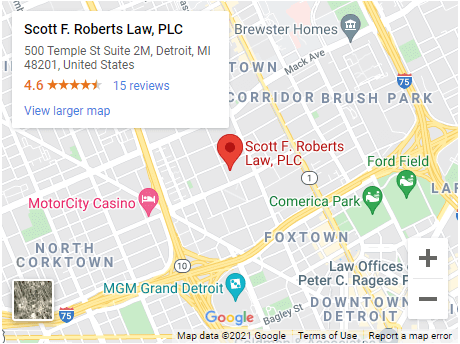As one of his final moves in office, former Governor Rick Snyder signed a bill that amended sections of the MMFLA. The amendments were signed on December 28th and took effect on January 1st. The Senate Bills 1262 and 1263 effect specifically the application process of the MMFLA. In as broad a sense as possible these bills make the licensing process more practical for entities, companies, and corporations that have multiple members. Please hold your applause until the end—it’s not all good news.
This article will explain the most important amendments coming from 1262 and 1263 respectively, as well as how those changes effect the current application process. Whether or not the amendments actually make the process easier, and any other important information you should know about these changes, will also be addressed.
SB 1262
Under SB 1262 amendments are being made to parts of the MMFLA application process that concern other ownership interests in the licensee. As you probably already know, under the previous MMFLA rules anyone who held even a 1% interest in a licensee or potential licensee needed to be put through the same process as any other applicant. In addition, anyone with an indirect profit interest—e.g. giving an employee 2% of profits as part of a profit-sharing program—would make that employee a “true party of interest.” As we had previously written about, the term “true party of interest” was ambiguously defined, which gave LARA a great deal of leeway in deciding who would or would not be considered a true party of interest.
Prior to the enactment of SB1262, any person or company considered to be a “true parties of interest” had to be included on the MMFLA application. However, the fun did not end there. In addition to being listed on that page of the applicaiton, a “true party of interest” was also required to have their own full supplemental application filled out. Also, if that “party of interest” had a spouse, their spouse needed a full application as well. You can see how this could get out of hand rather quickly.
SB 1262 removes the entire “true party of interest” section from the license application. Instead of having a section that requires disclosure of all people who hold any direct or indirect interest in your company, SB 1262 defines exactly who needs to be disclosed in the application process. The specific language used in SB 1262 requires those who have a more substantial ownership interest in your company. You might be thinking, what does substantial interest mean? It means managerial employees of the applicant and persons holding an indirect or direct ownership interest in the applicant of at least 10%. For other ownership arrangements like partnerships, LLC’s, etc., a person is not considered an applicant unless they hold a stake of at least 10% in the company or exercise control over or participate in the management of the business.
Another interesting change spurred by SB 1262 is the changes governing transfer of ownership requirements. Under the previous rules any transfer in ownership of a license required Board approval from the Medical Marijuana Licensing Board. SB 1262 changes that rule to only require Board approval when the transfer would result in an equity change of 10% or more. This change will likely help both smaller start-up entities and larger national companies when it comes to Michigan licensing
This change will help smaller Michigan cannabis companies more easily attract outside investors to their project. As cannabis business attorneys, we have seen many an investor balk at having to go through the supplemental application process. This is especially true for wealthier individuals and business owners due to the sheer amount of financial information being requested by LARA for MMFLA applications. The current work-around—convertible instruments—simply does not provide the certainty that many investors are looking for with respect to their investment. Put another way, investors do not want their equity stake to be contingent upon the whims of the seemingly arbitrary decisions of the licensing board. As Calvin Johnson’s example illustrates, everyone before the licensing board is one out-of-state traffic ticket away from denial.
Conversely, this change opens up the Michigan cannabis market to large, publicly traded cannabis companies such as Canopy or Aurora, as well as private companies with private equity investors. The MMFLA’s previous transfer rule, which required any transfer of ownership be reported to LARA, and the 1% rule requiring any owner of 1% or more of ownership to submit a supplemental application, made it virtually impossible for public companies to enter the Michigan market. It also made it difficult for private companies with substantial private equity backing. With this rule change, public companies are able to enter the Michigan cannabis market. While that may not seem like positive news to most Michigan cannabis companies, there is one silver lining—Michigan-based cannabis companies will be able to take their company public.
SB 1262 also officially makes the change of definition for industrial hemp and removes it from the definition of marijuana. This is not a surprising move at all as the 2018 Farm Bill, which became effective January 1, 2019, and provides a path for legal commercial hemp production in the U.S.. Although it is not surprising, it is nonetheless a welcome sight and could mean further changes and amendments to hemp licensure in the state.
SB 1262 also revamps the criminal punishments for operating a marijuana facility without a license. The criminal guidelines will include for first time violators a $10,000 fine and $25,000 and/or 93 days imprisonment. The first-time violation will also be considered a misdemeanor. Subsequent violations could be punished with up to a year in prison, in some instances that result in serious injury or death up to four years.
SB 1263
SB 1263 does little more than to actually update the criminal code to reflect the new punishments for the above listed crimes. Since the above listed criminal punishments do not “go live” until June 1, 2019, some have read this new law to allow unlicensed operation until this date. As cannabis attorneys, we believe that is incorrect as the law currently does not allow the operation of an unlicensed marijuana facility, notwithstanding certain communities condoning otherwise illegal caregiver centers. These bills simply make the punishments steeper. Additionally, LARA has stated previously that the operation of an unlicensed facility will be considered an impediment to any future marijuana license application…in short, don’t do it!
HB 6422
I know what you are thinking, we never mentioned a third bill. Consider this a bonus and one you will want to pay specific attention to going forward. It has a lot to do with our previous article on banking in the marijuana industry. HB 6422 would amend the Marijuana Tracking Act to allow a person licensed under the MMFLA to authorize LARA to disclose that licensee’s information and data to financial institutions identified by the licensee. This is an important development because your information as a licensee will be taken from statewide tracking software and will be verified. This will help financial institutions implement their specific cannabis banking compliance programs, thereby making their jobs a little bit easier. This may allow for banking in the industry to flourish a lot quicker than previously assumed.
TAKE AWAY
SB 1262 by far is the big change here. Licensing in the state seems to be heading in a much more favorable direction. This could be a result of the coming change to recreational licensing, or more likely simply the fruits of an effective lobbying campaign by a combination of larger cannabis companies seeking to enter into the Michigan market and Michigan cannabis companies eyeing an initial public offering.
Either way, this amendment does help the industry move forward as it helps streamline investing in licensed entities and provides investors additional certainty that they can own a piece of the entity that are investing in. However, it does effectively kill Michigan’s Mom and Pop marijuana market.




